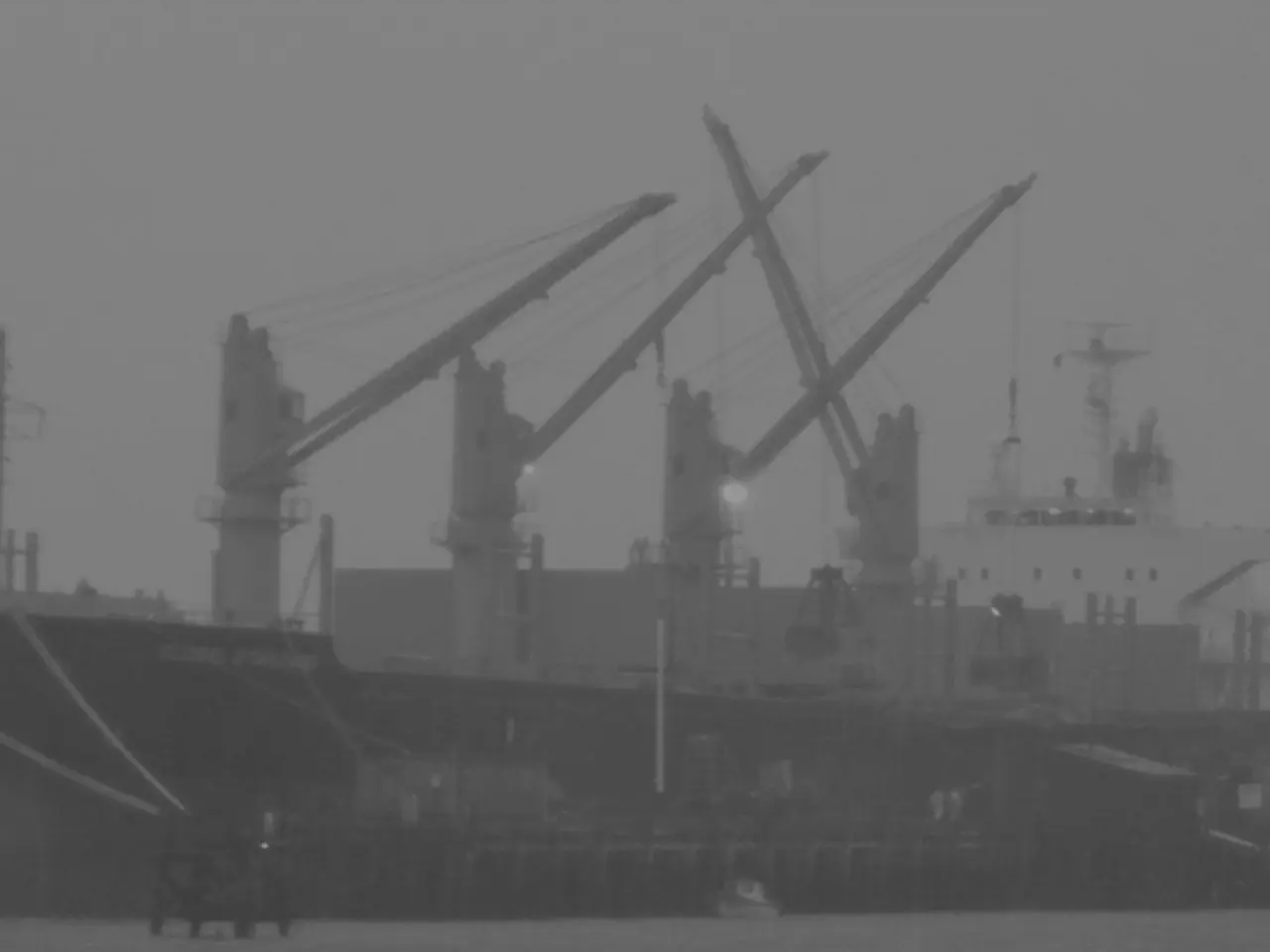Container ship operator Maersk resumes visits to Haifa Port as regional tensions decrease.
In a significant development, Maersk, one of the world's largest shipping companies, has announced the resumption of its vessel calls to Israel's Port of Haifa, effective from June 25, 2025. This move comes after a temporary suspension due to heightened security tensions between Israel and Iran in the Middle East [1][2][3][4].
The resumption of Maersk's operations at Haifa follows a U.S.-brokered ceasefire and an easing of conflict, allowing Maersk to reopen acceptance for both import and export cargo at the port. Regular vessel calls are scheduled to resume from June 30, 2025 [1][2][4][5].
The recent military escalation had disrupted global shipping routes, particularly affecting the Eastern Mediterranean, leading to higher insurance premiums and increased operational risks for shipping companies [3]. Maersk’s temporary suspension reflected these elevated costs and security concerns. The resumption of services at Haifa should help normalize shipping operations, potentially stabilizing or reducing premiums and costs associated with rerouted cargoes and insurance surcharges.
However, the shipping industry remains cautious, as security risks in the broader Gulf region—such as GPS jamming incidents in the Strait of Hormuz—persist despite the ceasefire [1][2]. Maersk is maintaining vigilant monitoring of maritime security, with contingency plans ready to adapt swiftly if the security situation deteriorates again [2][4].
The cessation of direct hostilities between Israel and Iran, along with the ceasefire, has decreased immediate security threats in the Eastern Mediterranean, facilitating Maersk's decision to resume port calls [1][3][4]. Nevertheless, security risks remain elevated in strategic waterways like the Strait of Hormuz, a vital chokepoint for global shipping, with ongoing incidents such as GPS jamming affecting transits [1][2].
Maersk has reiterated that crew safety and operational security remain top priorities. The decision to resume operations at the Port of Haifa is also related to the prospect of the current cease-fire agreement bringing de-escalation to the conflict. However, the Strait of Hormuz, a key waterway for global trade, is still affected by these security threats.
The situation in the region is fluid and requires continuous monitoring by Maersk. The maritime industry remains on alert due to these ongoing security threats. Operations at the Port of Ashdod remain unchanged for now but are under ongoing review by Maersk. The resumption of Maersk's operations at the Port of Haifa does not signify a complete resolution of regional tensions.
It is important to note that the ongoing security threats in the region may continue to impact freight costs, although no specific information was provided about this in the article. Similarly, no additional information about the specific regional tensions or ceasefire agreement was provided in the article. The decision to resume operations at the Port of Haifa was made due to signs of de-escalation and a current ceasefire in place. Maersk has stated that it will continue to monitor the situation closely and will be ready to make changes if safety concerns reappear. No information about the potential impact of the resumption of operations on freight costs was provided in the article.
- The resumption of Maersk's operations at Haifa signals a potential stabilization for global trade, as shipping operations in the Eastern Mediterranean may normalize, possibly leading to reduced premiums and costs.
- Despite the ceasefire, the shipping industry remains vigilant, particularly concerning the ongoing security risks in the Strait of Hormuz, a crucial chokepoint for global trade, which may continue to impact freight costs and operational decisions.






